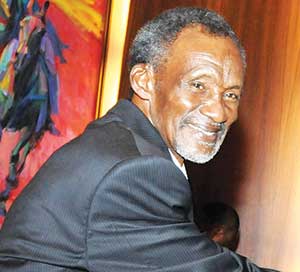Appointment of judges from the civil service is causing ripples. Issues of infection by bureaucratic virus, incompetence and elevation come to the fore, Senior Correspondent, ONYEWUCHI OJINNAKA, writes.

One topical issue that has evoked arguments from stakeholders in the judicial sector is whether it is desirous to appoint judges from the civil service, particularly from the Ministry of Justice.
Presently, judges at both the federal and state judiciary are appointed from the Ministry of Justice. Other areas judges emerge from are the magistrate cadre and the private legal practitioners.
In the civil service, the most senior law officers, especially those that have steadily made remarkable progress in litigation while serving in the Ministry of Justice, are usually considered for elevation to the bench. Also from the judiciary, particularly the magistrates, the most senior magistrates, specifically the chief registrar and some deputy chief registrars, are usually nominated for appointment as judges. Similarly, from the independent legal practitioners, diligent lawyers with outstanding and noticeable success in the profession are also recommended for appointment as judges.
However, in these three cadres from which judges are appointed, the one that has attracted mixed reactions is the appointment of judges from the civil service. It was argued that the bureaucratic process that is associated with the civil service may impact positively to any ‘civil servant judge’ and affect the speedy development of the judiciary in criminal, constitutional and civil matters as well as quick justice delivery.
Another argument canvassed against the appointment of judges from the civil service is that law officers from the ministry perform more of prosecutorial job and not exposed to handle civil, constitutional and company law cases. They are mostly engaged in prosecution, which is only one aspect of litigation.
Pundits further argued that most law officers in the ministry, though they read constitutional and company aspect of law, do not have the requisite experience to handle constitutional and company-related matters in courts.
To validate popular opinion on the desirability or otherwise of appointing judges from the civil service, TheNiche spoke with some stakeholders in the legal sector.
A senior member of the Nigerian Bar Association (NBA), Guy Ikokwu, advocated that judges should not be appointed from the civil service, arguing that judges from the civil service were state counsel before their elevation to the bench, adding that as state counsel, ‘they just practise one branch of the law’.
He added: “When they are told to incorporate a company, they do not know what to do.” It is his belief that a judge who comes from the bar and in active legal practice has varieties of legal experience and can appreciate addresses from the bar and will not get angry.
“Some of our judges get annoyed when you start teaching them the law. Instead of writing a ruling on a motion same day, it takes them three to four weeks. In a simple ex-parte motion, some judges will adjourn it for three or four weeks. That is why you have the delays. About 85 per cent of our judges today in the country were appointed from the civil service,” Ikokwu disclosed.
But the solicitor-general and permanent secretary, Lagos State Ministry of Justice, Lawal Pedro (SAN), disagreed entirely with the position of Ikokwu that law officers should not be elevated to the bench.
“The assertion is wrong, misplaced and total misconception of law officers,” Pedro stressed.
He said law officers in Lagos Ministry of Justice are vast in all aspects of law, adding that, in Lagos, law officers handle civil litigation, property and commercial cases and, in most cases, they come out victorious. He argued that both the law officers and private law practitioners passed through universities and the law school, adding that there is no record that has shown that those in private practice perform better.
“We are most grounded. We are most practiced,” he affirmed.
He held the position that there should be no dichotomy, adding that what is important is credibility, performance and knowledge of the law.
He, however, admitted that in every system, there may be some loopholes, expressing that there may be a few judges who dance to the tune of the government. But even then, the judges are part of government and yet they deliver judgments against the government. He cited the environmental sanitation judgment which was against the Lagos State government, although a stay of execution of the judgment has been granted, following the notice of appeal filed by the government.
“We have credible law officers who compete favourably with those in private practice. We even do better because we are well equipped and go through proper research of what the law says in all the cases we handle. Therefore, there is no reason in saying that law officers should not be appointed as judges,” the solicitor-general said.
In the same vein, a professor of law and Senior Advocate of Nigeria (SAN), Itse Sagay, posited that judges can be appointed from the ministry, judiciary, private service and even from faculty of law in the universities.
According to the constitutional lawyer, “No evidence has shown that judges from the civil service do not do well.” He mentioned the likes of the late Justice Chukwudifu Oputa who came straight from private practice as an outstanding and erudite jurist. Also, the late Justice Kayode Eso, who came from the Ministry of Justice, was an ebullient and outstanding jurist that served creditably while in the bench.
Sagay said: “These judges and some others from the (private) practice and ministry performed very well and are well respected nationally and globally.”
According to him, what matters in the appointment of judges is the character of the person. “Does the person have good character? Does he have principle, and is he diligent? Wherever he comes from does not matter. What matters is his integrity and sound knowledge of the law.”
Another Lagos-based lawyer, Johnson Esezoobo from Destiny Chambers, supports the appointment of judges from the civil service, but with a proviso that there should be an established code of work.
He said: “I subscribe to the view that judges can be and should be appointed from the civil service, but there should be established code of work.”
However, Esezoobo spotted a disadvantage in such appointment, noting that ‘civil servant judges’ tend to pander to the whims of government. He also noted that when they are there, some of them do not seem to be serious, unlike those from the private service.
Expressing his fears, Esezoobo said that they (civil servant judges) have already indoctrinated themselves with the idea that they are civil servants and, therefore, are sometimes not serious in handling issues, unlike those from the private service. He is of the view that appointment of judges should be keenly contested by those in both the civil service and private service. “The seats should be left open to all for stiff competition.”
However, majority of the stakeholders believe that where the judge comes from should not be the issue, rather what Nigerians should worry about is to quick justice delivery system.












